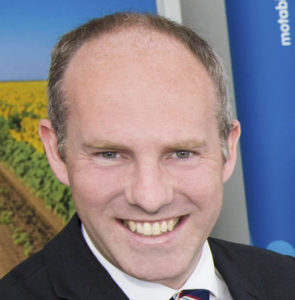 DISABILITY minister Justin Tomlinson, pictured, wants all MPs to hold employment fairs in their constituencies to give disabled people a better chance of finding work.
DISABILITY minister Justin Tomlinson, pictured, wants all MPs to hold employment fairs in their constituencies to give disabled people a better chance of finding work.
MPS should take a more active role in matching disabled jobseekers with employers in their areas, he said at his own jobs fair last week in Wiltshire.
The event was part of the Government’s Disability Confident initiative to open employers’ eyes to the wealth of untapped talent available amongst disabled people.
It is the latest of 15 local events run by MPs from across the political spectrum.
But with 635 other constituencies yet to benefit, MPs have been invited to consider what they could do to support disabled jobseekers on their patch and, in particular, invited to follow the “Reverse Jobs Fair” model.
The Minister said: “Despite steady improvement, it is still the case that some disabled people are finding doors shut in their face.
“Time and again disabled people tell me that they want to work and have the skills but are overlooked for roles they would be perfect for.
“This has to change and MPs, local authorities and other organisations can play their part by holding Disability Confident jobs fairs across the country. The ones we have seen have been very successful, but there is no reason why they shouldn’t take place in every one of the UK’s 650 constituencies.
“Together, MPs and employers can reach out to disabled people and make a tremendous difference.”
The Minister coined the term “Reverse Jobs Fair” for the event as local employers, rather than jobseekers, gathered to discuss their specific recruitment needs.
Wiltshire Constabulary, in particular, was singled out by the Minister, who said:
“The disabled people in the Wiltshire police control room are often the first voice someone hears in a time of crisis. The support and service they offer, in high pressured situations, can be the difference between life and death.
“Imagine if Wiltshire police had written off people simply because of their disability? I’m delighted our Access to Work programme is giving people the chance to flourish in roles for which they might otherwise have been overlooked. I hope these examples continue to break down misconceptions.”
John Flynn, head of Contact Management at Wiltshire Constabulary, has championed an open recruitment process and is now benefiting from having a team from a range of backgrounds.
He said: “I don’t want to give in or give up on someone who has potential. Many of the disabled people we hire have never been given a chance; no one has invested in them.
“We’ve had really good success stories by making the simplest of adjustments.
“Mike, for example, who has a hearing impairment, was head and shoulders above some of his peers when pitched against them. He has been assisted by the government’s Access to Work scheme which funded sophisticated hearing aids. He now answers the phones in our control room, dealing with extremely high pressured situations.”
David, another phone operator employed in the Wiltshire emergency control room, has also seized the opportunity provided by his employer.
He said: “Before joining the police I was out of work for quite some time; mainly as I had a large gap in my employment history and lack of confidence.
“Working for Wiltshire constabulary has had a massive impact on my life including a sense of self-worth, confidence and general overall wellbeing. I feel more respected by my family and friends and have been able to grow and mature as a person.
“The most enjoyable part of being in the control room is that I am able to help the general public and be a part of resolving issues for people when they are feeling at their most vulnerable.”
- While 226,000 more disabled people found work last year, there is still a huge gap between the employment rate of disabled and non-disabled people.
- The Government has set a target to halve the gap, getting one million more disabled people into work.
- THE working age disability employment rate in the UK is 45.9%, compared to the non-disabled employment rate of 79.4%.
- The Disability Employment gap is 33.5%.

